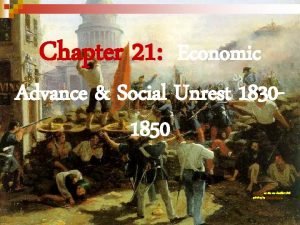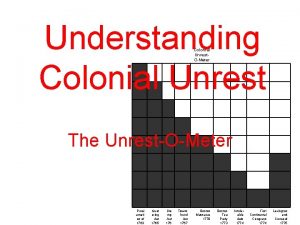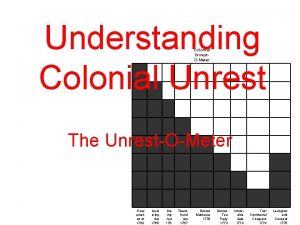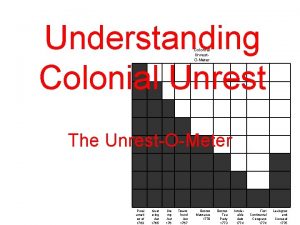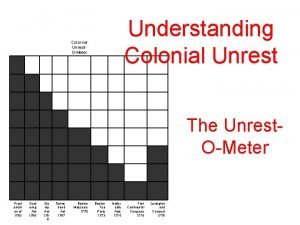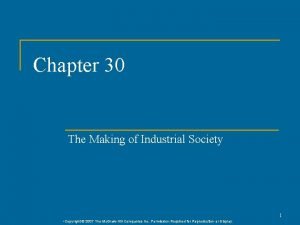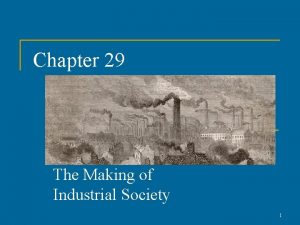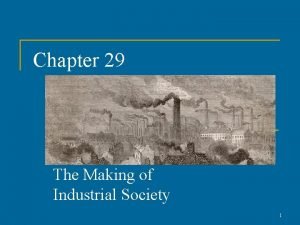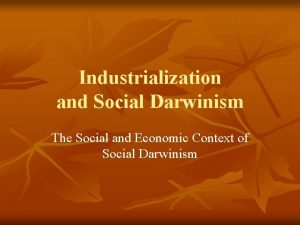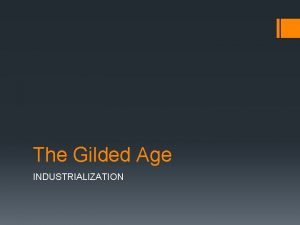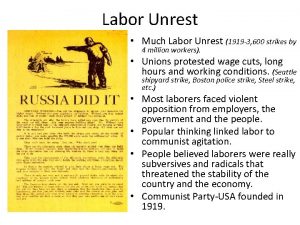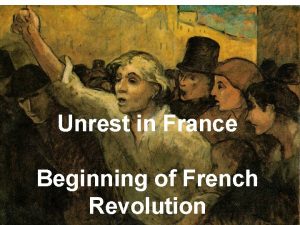Chapter 21 Industrialization Social Unrest Industrial Society in









- Slides: 9

Chapter 21 Industrialization & Social Unrest

Industrial Society in Europe • Population and migration – population explosion in Europe leads more and more people to live in the cities • Life is tough in the city – inadequate housing and sanitation, disease and crime • In rural areas, serfdom is abolished in Prussia, Austria and Russia

Railroads • Railways built in England, Belgium, France, and Germany • Easier and faster movement of people and products and leads to the birth of even more industrialization (like Iron and Steel industries)

The Factory System and the Family Early on – family roles stayed the same, later – because of better machines, unmarried women and children worked in the factories Child Labor ended with the English Factory Act of 1833 which forbade the employment of children under nine and limited the work day to nine hours for children between 9 -13; also included an education requirement where factories had to provide at least 2 hours of education.

Interesting results of the Industrial Revolution Because more people were living in the cities, crime rates increased. New police forces came about to keep order as early as 1828 in France, 1829 in England (the “bobbies” and 1848 in Germany Prison reform also took hold – serious offenders were now sent to Australia from England to Devil’s Island (S. A. ) from France

Economics and Ideals Thomas Malthus – contended in his Essay on the Principle of Population (1798) that population would outstrip food supply, making conditions of working class worse Utopian Socialists – often advocated for the creation of ideal communities and questioned capitalism Anarchists – rejected both industry and the dominance of government

Karl Marx and Marxism • Karl Marx – believed class conflict would eventually lead to the triumph of the industrial proletariat over the bourgeoisie and the abolition of private property and social class – comes to be known as Marxism • Friedrich Engels • Published The Condition of the Working Class in England – presented a devastating picture of working conditions in industrial life • Joined with Marx to write Communist Manifesto – called for more radical change than socialism – the outright abolition of private property, rather than just the redistribution

1848 • A series of liberal and nationalistic revolutions occur in response to food shortages, unemployment, and poor working conditions • Revolutions occur in France, Austria, Italian and German states • The Vienna Uprising – the abolishment of serfdom by the Hungarian diet quells the Hungarian independence movement • Revolution in Prussia • Frederick William IV – announces Prussia will help unify Germany, ending the Prussian monarchy

The Hapsburg Empire The Vienna Uprising – the abolishment of serfdom by the Hungarian diet quells the Hungarian independence movement
 Economic advance and social unrest
Economic advance and social unrest Colonial unrest-o-meter
Colonial unrest-o-meter Colonial unrest-o-meter
Colonial unrest-o-meter Colonial unrest-o-meter
Colonial unrest-o-meter Colonial unrest-o-meter
Colonial unrest-o-meter Civil unrest tabletop exercise
Civil unrest tabletop exercise Chapter 30 the making of industrial society
Chapter 30 the making of industrial society Chapter 29 the making of industrial society
Chapter 29 the making of industrial society The making of industrial society chapter 29
The making of industrial society chapter 29 Social darwinism definition industrial revolution
Social darwinism definition industrial revolution
